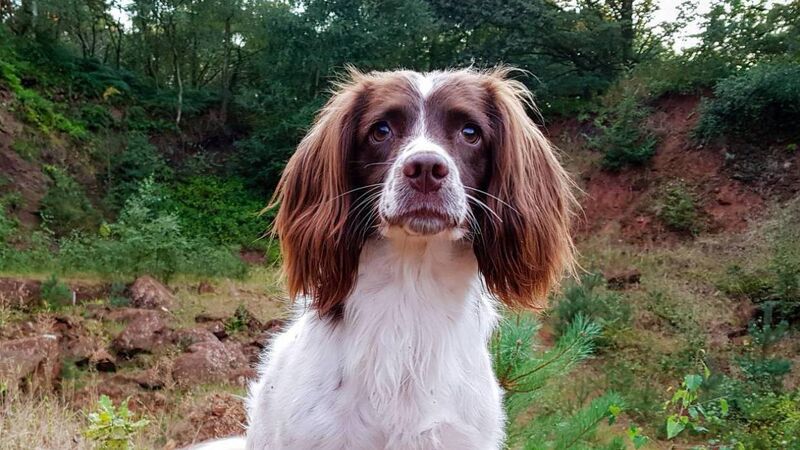Áilín Quinlan: Too old for walkies, I must accept my poor Molly is fading

“It’s alright!
“You don’t have to!
“Honestly! Don’t!”
“Stop!”
But still she hauled herself up the stairs after me, step by tortuous step, worrying; following me everywhere.
Always worrying, always following.
Ah well, that makes two of us.
She’s getting old now; in human years my dog is probably into her late eighties, well beyond the average life-span of her species. She’s lean and happy. She looks well for her age.
She is a happy, affectionate, and playful dog who follows me everywhere.
She is an endearingly terrible guard dog who still insists on staggering to her feet and barking at visitors, despite the fact that her gentle temperament and age-related stiffness render her utterly ineffective in terms of posing any kind of real threat.
Life is remorseless, ageing is inevitable, and my dog’s longer and longer daytime naps and her increasingly stiff limbs are warning signs.
We’re not sure exactly what age she was when she came to us, but she has lived with us for, I think, some 13 years now, which means she’s definitely on the far side of the average springer spaniel lifespan.
Dogs are really, really good for us.
Research has found they offer emotional support, reduce stress and loneliness, and encourage physical activity. Interacting with dogs can lower your levels of the stress hormone cortisol and increase your feel-good hormones, so dog ownership is associated with lower rates of depression and anxiety.
Dogs are also, it seems, and as many a dog owner will attest, highly attuned to human emotions. They know your ways. Dogs can offer solace during tough times. Dogs generally ensure their owners are healthily active – one study found that owners walked their dogs an average of seven times a week.
There are other benefits.
Children in dog-owning families show increased immunity to allergies. Owning a dog has been shown to have very positive results for families with a child with autism – having a beloved pet can, the science shows, result in lower parental stress, more family outings, and fewer meltdowns on the part of the child.
Interestingly, though, the benefits are not all one-way.
Science says the feelgood hormone oxytocin is what gives us the rush of affection so many dog-owners feel for our pets.
Interestingly, the studies also show that dogs get that ‘rush’ of oxytocin as well. This suggests that the deep affection between dog owners and their pets goes both ways.
A good friend of mine told me a story about how, one day, her long-time pet, a Corgi, didn’t seem to want to go for their usual walk, so she went alone.
When she returned, she found him standing four-square in her sitting-room, looking at her. This was very unusual because what the Corgi usually did when she was out was curl up and snooze on the rug.
She sat down. He walked over to her. He stood beside her for a while, looking up at her. Then he lay down beside her feet and died.
I have enjoyed the many benefits my dog has given me for years, but the fact that she is reaching the age of 13 and beyond means that I must accept my poor Molly is fading.
She no longer accompanies me on walks. She still recognises the signs; the (increasingly hopeful) rattle of the lead, and the high vis jacket and winter fleece hat that mean I’m heading out, but she no longer jumps up and beats me to the door.
Instead, she stands there, watching me leave. I am sad.
I know her passing is inevitable, and I know the sense of loss it will bring. I’ve experienced it before. When our first dog died around 18 years ago, I didn’t expect the wave of grief and loneliness I felt.
A few years ago, a friend and I called to the home of a woman whose dog, a long-time companion, had died that very day. She was inconsolable. Her pet had been a constant presence in her life that needed and gave attention, affection and loyalty, and motivated her to get out and exercise and meet other people.
One day the dog was gone.
It’s difficult to describe the grief of losing a truly beloved pet to somebody who has never lost one, but it’s visceral.
And yes, if you have that great bond, which so many dog-owners share with their pet, the snapping of the bond will inevitably bring heartbreak and a sense of loneliness. So why do so many of us have dogs?
Because, even in the grim knowledge of how it must inevitably end, having a dog, or any pet that you have a bond with, is a privilege.







 App?
App?




